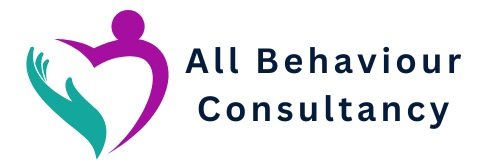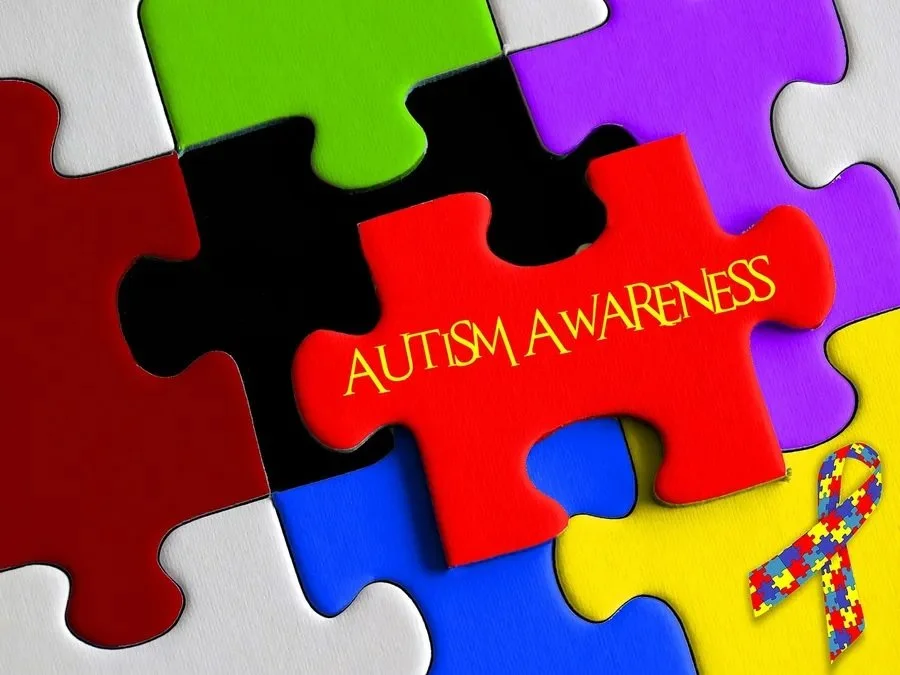Latest Autism News Highlights Hidden Crisis of Undiagnosed Autism in Over-50s: Thousands of Older Autistic Adults in the UK Have Gone Undiagnosed
A Hidden Crisis: Autism Going Undiagnosed in Older Adults
A new review published in the Annual Review of Developmental Psychology by researchers at King’s College have uncovered a startling reality: as many as 89% of autistic people aged 40–59, and 97% of those aged over 60, are undiagnosed in the UK.
This means that tens of thousands of people have lived most of their lives without recognition or the tailored support they need.
The consequences of late or missed diagnosis are serious.
How do Autism Behaviour Specialists Help Your Child Thrive?
Are you wondering if hiring an Autism Behaviour Specialist is right for you?
Is your ASD child struggling with daily routines, communication difficulties, or challenging behaviours?
It’s a tough journey for many parents, and you shouldn’t have to navigate it alone.
Whether it's improving communication, reducing anxiety, mastering routines, or boosting confidence, we help Autistic children thrive with curiosity, resilience, and joy.
What Makes a Great ABA Consultant? 7 Key Qualities to Look For
Applied Behaviour Analysis (ABA) can make a life-changing difference for autistic individuals and those with learning or behavioural challenges.
The quality and impact of any ABA programme are shaped first and foremost by the consultant guiding it.
Whether you’re a parent seeking support for your SEN child, a school looking to embed inclusive practices, or a local authority commissioning Autism services, choosing the right ABA consultant is one of the most important decisions you’ll make.
So, what exactly makes a great ABA consultant?
Here are seven key qualities to look for.
Top Tips from Top ABA Consultants: Professional Insights for Parents with Autistic Children
Applied Behaviour Analysis (ABA) Consultants spend years studying behaviour, observing patterns, and developing personalised strategies that make a real difference.
Their insights go beyond theory - they’re grounded in the successes, challenges, and breakthroughs they’ve experienced and seen first-hand.
In this post, we’ve gathered top tips straight from our experienced ABA consultants to help you support your Autistic child in practical, compassionate, and effective ways.
Mapping the Many Faces of Autism: 4 Biologically Distinct Subtypes That Could Redefine Autism Support
A ground-breaking study from Princeton University and the Simons Foundation has identified four biologically distinct autism subtypes, offering new hope for more precise and personalised Autism Behaviour Support.
This research challenges the idea of autism as a single, uniform condition and instead (finally) recognises the rich diversity of experiences within the spectrum.
For families, educators, and professionals, this is more than just a scientific breakthrough - it’s an opportunity to tailor autism support to each individual’s unique strengths, needs, and developmental pathway.
Too Quiet, Too Still: Understanding Under-stimulation in Autism
Under-stimulation occurs when the brain is not receiving enough sensory input.
For autistic children - particularly those who have reduced sensory awareness - this can result in feelings of boredom, restlessness, and emotional dysregulation.
Key Signs of Under-stimulation in Autistic Children:
Excessive movement (pacing, jumping, spinning)
Increased vocalisations (humming, yelling, echolalia)
Repetitive behaviours (tapping, flapping, mouthing objects)
Seeking intense sensory input (e.g., crashing into furniture, seeking deep pressure)
Sudden “challenging” behaviours that seem to come out of nowhere
What Exactly Does a Behaviour Consultancy Do? 6 Ways We Help Children Thrive
A Behaviour Consultancy is about giving SEN children the tools they need to thrive independently.
As their confidence, communication, and self-regulation improve, they begin to navigate the world with less fear and more freedom.
For parents, this often brings a deep sigh of relief.
The constant second-guessing fades.
Routines become easier.
Your role as a parent begins to feel more joyful and less reactive.
Our support isn’t just about “fixing” behaviours - it’s about creating lasting change that strengthens the entire family dynamic.
Behavioural Challenges in Special Needs Children: How Can Parents Help?
Facing everyday struggles with a child who has ADHD, learning disabilities, or emotional regulation difficulties can leave you feeling helpless and alone.
Impulsivity, meltdowns, difficulty following instructions, and emotional outbursts aren’t signs of defiance - they’re expressions of deeper needs.
As parents, it can be difficult to manage alone, so here are the ways that you can make a difference in your SEN child’s life.
How to Build Emotional Regulation Skills in Autistic Children
Emotional regulation is the ability to manage feelings like frustration, excitement, fear, disappointment, and joy.
For Autistic children, this skill can be harder to master due to sensory sensitivities, communication challenges, or difficulty understanding social cues.
But with your support and a few simple strategies, your child can learn to:
Recognise what they’re feeling
Express emotions safely
Use calming strategies during difficult moments
Rebuild after a meltdown with calmness and trust
10 Reasons Why You're Not Letting Your Autistic Child Down
Autistic or not, your child is loved wholly, deeply, and without conditions. That, more than any therapy or routine, is what makes the difference.
Every parent is a great parent if they are able to love unconditionally.
Read on for 10 Reasons why you’re not letting your Autistic child down.
🚩 Red Flags to Look Out for When Searching for an ABA Therapist
Finding the right ABA (Applied Behaviour Analysis) therapist for your child can feel like navigating a maze, especially when you're trying to make the best decisions in a world that may not always accommodate neurodiverse needs.
At All Behaviour Consultancy, we believe families deserve honesty, transparency, and genuinely expert care.
Here are some red flags to watch out for when choosing an ABA therapist, and what to look for instead.
📢 The Autism Diagnosis Crisis: Why Early Detection Can’t Wait
As of March 2025, over 224,000 people in England are currently waiting for an Autism assessment.
The Government has acknowledged the Autism crisis, but progress remains slow. It’s a National Crisis in the UK.
At All Behaviour Consultancy, we work with families every day who are living through this wait. Parents who know something is different but can’t get a referral. Children struggling in school while their names sit on a list. Adults who’ve masked or struggled for years, now seeking answers.
The wait times aren’t just frustrating - they’re life-altering.
The government has acknowledged the crisis, but progress remains slow.
Effective Strategies for Managing Autism at Home: Practical Tips for Parents
Parenting an Autistic child is a journey filled with both challenges and moments of joy.
We understand that every child is wonderfully different, and there’s no one-size-fits-all playbook.
But there are thoughtful, effective strategies you can bring into your home to create a calmer, more connected and nurturing environment.
Whether you’re just beginning to understand your child’s needs or you’ve been walking this path for a while, these practical tips are designed to support you, the real expert on your child.
ABA Therapy - Why are there not enough schools to support SEN kids?
Recent news has revealed that ‘thousands of families feel trapped in the turmoil of the UK education system’, as both mainstream and special schools reach breaking point.
As a huge advocate for the SEN community and an ABA Therapy provider in London, we feel this news at our very core.
In England, two-thirds of special schools were at or over capacity last year. With rising diagnoses of SEND, both special and mainstream schools are in a precarious position.
Junior’s Place of Hope: An Incredible Place for Autistic children to feel safe
In Sierra Leone, there exists a pervasive stigma and false belief system surrounding children with special needs.
CEO Spotlight: Georgiana Koyama is honoured at Black Women in Applied Behaviour Analysis Appreciation Day
Our founder, Georgiana Koyama, was honoured and celebrated on 21st February 2024, for her passion, dedication and tireless work spent on advocating for equality and autism acceptance across the globe.
Special Education Academic Tuition: A Personalised Approach via Zoom
With a new team of dedicated and qualified SEN tutors, All Behaviour Consultancy are thrilled to offer a unique online learning experience through Zoom, where we combine Applied Behaviour Analysis (ABA), Positive Behaviour Support (PBS), and personalised tutoring to create an individualised 12-week program.
Improving Skills at Home using ABA - Challenging Behaviours
The best way to deal with challenging behaviour is to create an environment that reduces the chances of it happening.
When motivation is high, it allows for a calm session.
Our approach to supporting your child is in line with your goal of ensuring his/her happiness above all else. So, his/her entire behavioural programming is based on this.
Transitioning into School Holidays this Winter
As this term comes to a close and we prepare to break for school holidays many feel relief, but for some, this transition may evoke worry, fear, and restlessness due to a change in routine.
Restrictive and Repetitive Behaviour’ is one of the key pillars that makes up the diagnosis of Autism Spectrum Disorder as noted by the Diagnostic and Statistical Manual, 2013 and can play a big role in making transitions for Autistic people. For these individuals, leaving school for two weeks may not have the same excitement attached to others due to the fact it disrupts the routine they rely on.
How Does ABA Improve Behaviour?
ABA therapy is the most widely researched intervention for autism. With 40 years of scientific research on Applied Behaviour Analysis, it’s a structured, scientific approach that improves social skills, communication, self-care and learning skills.
If you’re a parent of a child with learning disabilities or autism, you may be struggling to manage your child’s behaviour at home.
Or perhaps you’re going through the process of diagnosis, and feeling overwhelmed and stressed with the potential challenges you may be facing.
One of them is deciding how to best support your child and this is how you most likely came across this blog.




















